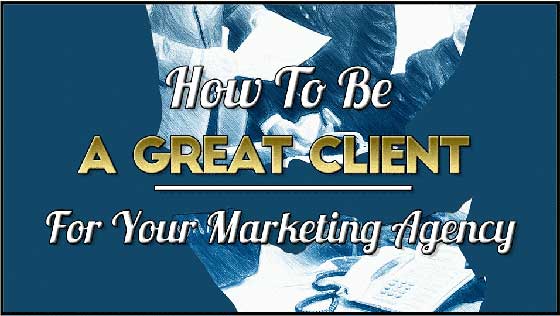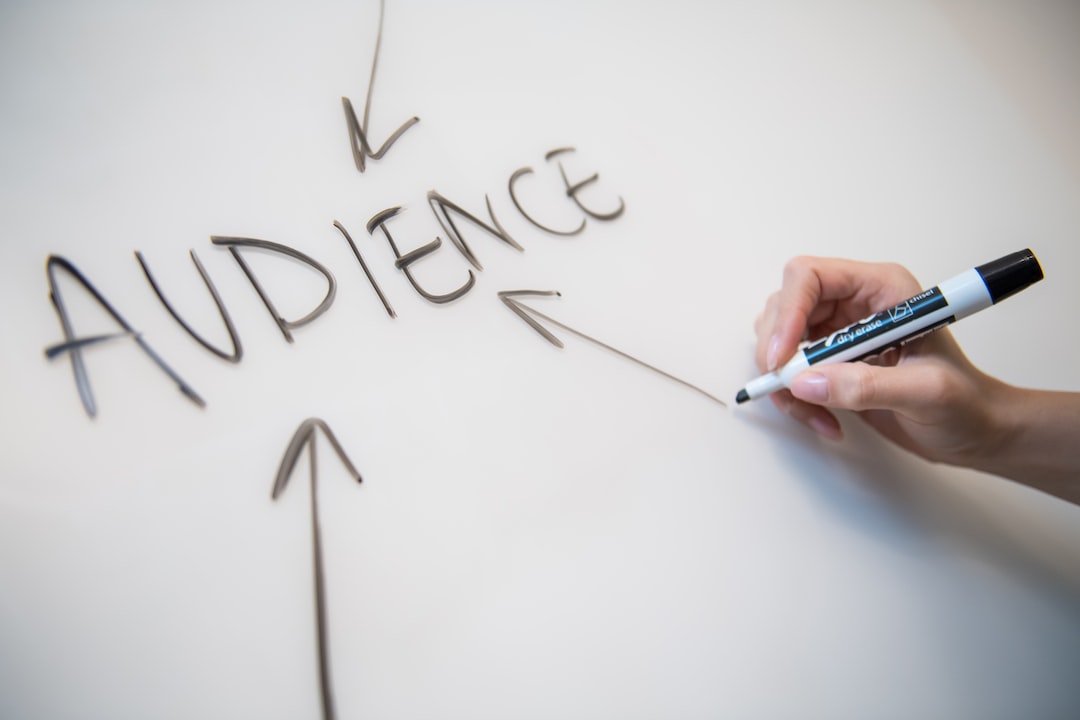Every company wants to have good clients, but not everyone knows how to be one. In the words of John Costello, Chief Global Marketing-Innovation Officer of Dunkin’ Brands: “The best way to be a better client is to be a better partner, with clear objectives, open communication, quick, thoughtful decisions and mutual respect, where you both listen to each other’s point of view.” Nice words, but is it a case of easily spoken, not so easily done? Here are some time tested methods on how to be a great client for your b2b marketing agency.
Table of Contents
ToggleSustain a Sound Client/Vendor Relationship
The secret sauce for achieving this is to view your relationship with the marketing agency as a partnership. Both the client and the vendor have the same objectives: to see the client’s marketing program succeed. There’s absolutely no value for the agency in having the client fail—if the agency wants to retain the client’s business, improve its standing in the business community and realize growth, it has to be effective. Once you’re sure you’ve chosen the right agency to be with, by placing it on the same level as yourself you afford it the opportunity to bring equal value to your game.
Offer Clear & Detailed Information on What You’re Trying to Achieve
Provide enough information for the agency to understand your requirements. Gary Leopold, President & CEO of Boston-based ISM, says “great work is like great sex—it means different things to different people.”
By establishing your expectations clearly at the start of the relationship, you can ensure both parties are on the same page. Clarify your goals and concerns, and don’t expect anyone to read your mind.
Provide Timely Communication & Feedback About What Works, What Doesn’t
Don’t hold back. Mike Fyshe of Toronto-based Reynolds and Fyshe says clients need to make a point of communicating issues as they happen.
Regular, one-to-one communications are valuable but they don’t deliver concrete action plans or agreements that span both organizations. And once the ball is rolling, it’s much harder to keep it together on the fly. Set up regular discussions, evaluate the good, the bad and the so-so frequently, and don’t let problems fester.
Have Faith in the Agency’s Expertise
You’ve hired an agency for a reason, which is usually because they have expertise in areas that you don’t. Understand that the collaboration is built on trust and allow them the chance to prove their worth. You can provide examples of work you admire and suggestions from your team, but don’t tell them how to do the job. If you can do it better, you shouldn’t need an agency in the first place. Take advantage of their knowledge and resources to achieve results you wouldn’t be able to get on your own.
See Both Sides of the Argument
Assuming you have the right partnership with the right agency, when they disagree with you the chances are good they’re coming from the right place. According to John Dragoon, Chief Marketing Officer and Channel Chief for Novell software: “True business and marketing leaders embrace uncertainty and complexity as creative catalysts that invite and, in fact, demand innovation.”
Use disagreements as a catalyst, try to see their side of the argument and appreciate that discussion is vital to the creative process. If the agency pushes back against you, it could be because they see an opportunity or a concern that you might have missed. At the same time, just because the agency says something doesn’t mean you have to do it. If it feels really wrong, stand up for your convictions.
Expect Fair Pricing, Not Discounted Rates
Everyone is in business to make money, and an agency that quotes you discount rates might well give you cut-rate quality work! Also, scope creep is the bane of every vendor’s existence, so expect fair pricing and a signed-off creative brief that includes deliverables before work commences. Allow the agency enough funding and time to produce their best work for you, and don’t be a price bully by trying to get the cheapest deal.
Do Your Part
Understand that deliverables significantly impact results, so delivering on requests and tasks is highly important from the client side, too. Far too often the agency is at the bottom of the marketing food chain, waiting for input and information from the client. By delaying on your deliverables, you create a logjam at the agency’s end that its team isn’t always able to clear effectively. The final result? The creative people end up having to scramble to deliver. If anyone is suffering from writer’s block (or the artistic equivalent), guess what’s going to happen to your work?
Being a great client is as much of an art as being a quality service provider is. Get it right, and your marketing agency will too.











